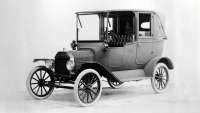1. Standard loan (bank, credit union, etc)
The financier lends the customer the money to buy a new or used vehicle. It is the simplest of loans but you need to be financially sound and prepared for some extra expenses. It can be secured or unsecured (higher interest rate). The vehicle is the security for the loan so the financier will demand it be fully insured.
UPSIDE
- Finance can include on-road costs.
- Agreed monthly payments over agreed time period.
- Low fixed or variable interest rate because finance is secured against the car.
- Flexible terms for time and repayments.
2. Commercial Hire Purchase
The financier buys the car and then hires it to the consumer over a set period. Can be for individuals and businesses. Monthly payments generally pay out the entire loan in the set period and the vehicle is transferred to the motorists when all payments are complete. Mostly replaced by chattel mortgages.
UPSIDE
- Flexibility allows financing of the total price; a deposit or trade-in; or even allow for a lump sum balloon payment.
- Repayments and interest rates are fixed.
- Easy to modify to suit borrower's budget.
- Low capital outlay and no GST on repayments.
3. Finance Lease
The financier buys the car and then leases it to the motorist. This offers the immediate use of the car with little or no capital outlay. These leases are available for individuals and businesses where the car is for business purposes. The motorist pays fixed, monthly rental payments and is financially responsible for the maintenance and trade-in residual risk of the car. At the end of the lease period, the motorist is given the option to refinance, return, sell or buy the car for the residual amount.
UPSIDE
- Immediate use of the car with little or no capital outlay.
- Repayments are generally tax deductible, but GST is payable
- Lease payment is made from pre-tax dollars.
- Interest rate is fixed and is low because finance is secured against the car.
4. Novated Lease
A three-way arrangement where the employee's wage is reduced - salary sacrifice - in exchange for an equal value of vehicle benefits. The employee leases the car directly from the financier. The employer has the obligation to pay the financier through a novated deed on the employee's wage. All operating costs of the car - registration, insurance, servicing, tyres, etc - are covered by the motorist. The motorist has sole responsibility for the car on termination of employment.
UPSIDE
- Can buy the car at the end of the lease.
- Can be leased for 100 per cent private use.
- Allows the employee to salary sacrifice with pre-tax income.
- Employee has the choice of a preferred vehicle.
- Employer benefits because it is a simple way of boosting a remuneration package.
5. Operating Lease
An agreement where the financier buys the vehicle and rents it to the motorist. The financier retains ownership of the car. The motorist has no risks associated with ownership, including the residual at the end of the period. At the end of the term, the motorist has the option to buy the car, continue to rent it or change to another (usually newer) car.
UPSIDE
- Businesses don't list operating leases on balance sheets so doesn't affect debt ratios, though this may change.
- Fixed repayments over a fixed period.
- No risks with ownership and residual payments.
- Rent is tax deductible
6. Chattel Mortgage
A fixed loan where the financier advances money to buy a vehicle. The financier holds a mortgage over the car which is used as security for the loan. Motorists can finance the total purchase price of the car or can make an up-front deposit or can use a trade-in. A residual payment may also be placed at the end of the term.
UPSIDE
- Motorist takes ownership at time of purchase.
- Minimal capital outlay.
- Flexible contract terms.
- Fixed repayments which can be tailored.
- Repayments exempt from GST.
- Depreciation and interest charged are tax deductible.
- Lower interest rates as finance is secured against the car.





.jpg)
.jpg)

.jpg)
.jpg)






.jpg)
.jpg)
.jpg)



.jpg)



.jpg)